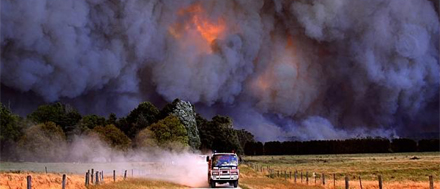
Australia’s forest managers will have a better understanding of mechanical fuel load reduction as a tool to reduce bushfire risk thanks to the $1.5 million Mechanical Fuel Load Reduction Trials. Assistant Minister for Agriculture and Water Resources, Senator Richard Colbeck, said bushfires are unfortunately an inevitable and devastating occurrence and the impact they can have on lives and our primary industries is often overwhelming. Source: Timberbiz
“The Liberal National Government has been working hard with state governments to undertake the Mechanical Fuel Load Reduction Trials through the National Bushfire Mitigation Program,” Minister Colbeck said.
“The trials are examining if mechanical reduction of fuel load is another viable way of protecting forests and communities, in areas where planned burning is undesirable.
“By undertaking these trials and incorporating the learnings from them we will be able to use evidence-based prevention and management methods in the future.
“Our hope is that it will give us alternatives to those we currently have—like planned burning—especially around key assets, high population areas where smoke can cause health concerns, or high conservation value areas where planned burns pose too high a risk.
“These trials are about reducing the potential for high intensity bushfires by finding effective and efficient ways to reduce fuel loads whilst retaining important forest values.
“The trials provide an example of innovative, active and adaptive management approaches to forest and fire protection across the landscape.
“We’re always looking for ways that do the least harm to the forest and produce the most benefit in mitigating the risk of bushfires.
“The treatments have now concluded and the results are being used to model fire risk at a landscape level, and analyse the costs and benefits.
“The overall results of these trials are expected in mid-2019.”
The Australian Government provided $15 million through the National Bushfire Mitigation Program from 2014 for states and territories to implement long-term bushfire mitigation strategies and improved fuel reduction activities





